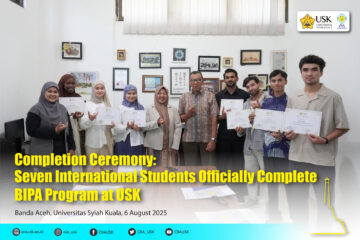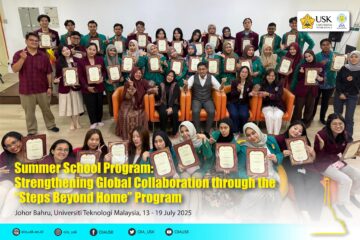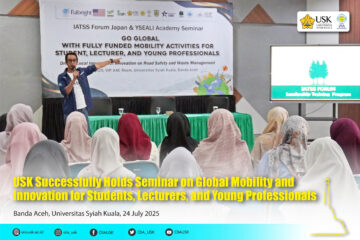International Students Participate in EBA 2025 Fieldwork Program at USK
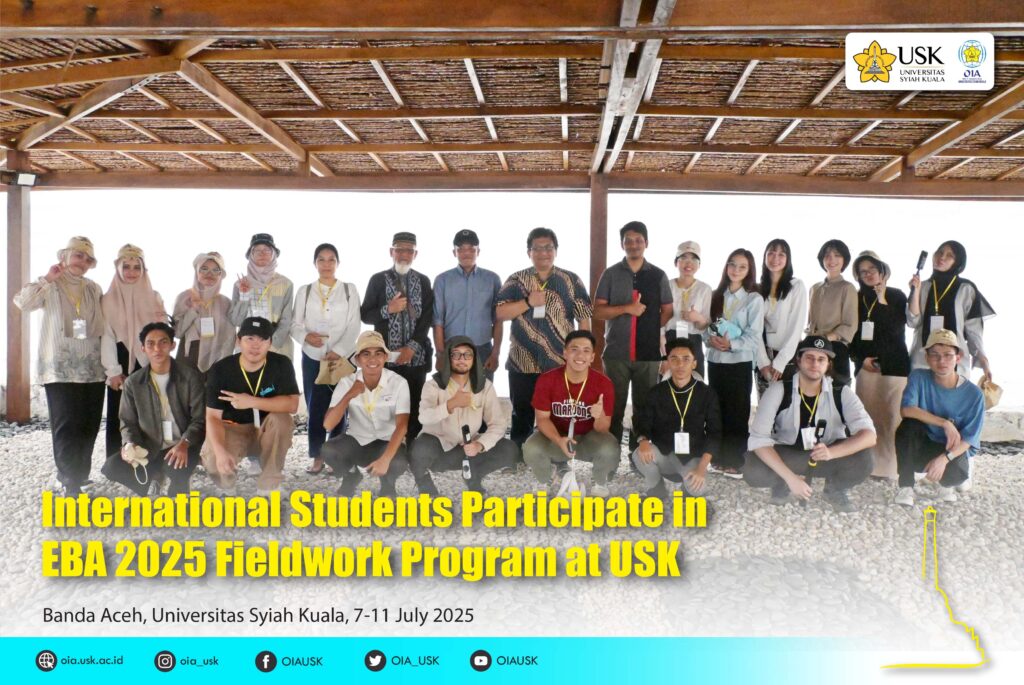
Universitas Syiah Kuala (USK), in collaboration with the School on Internet Asia (SOI Asia), successfully hosted the Evidence Based Approach (EBA) 2025 USK Fieldwork Program from July 7 to 11, 2025, in Banda Aceh. SOI Asia is an international collaborative network that focuses on enhancing educational and research capacity through internet-based technologies and cross-country cooperation within the Asia-Pacific region. Through its EBA Fieldwork program, students from various countries work together to identify real-world issues and offer practical solutions for local communities.
The EBA 2025 USK Fieldwork program brought together 16 participants from eight countries: Japan, Myanmar, Vietnam, Bangladesh, the Philippines, China, Malaysia, and Indonesia. This year’s fieldwork focused on the theme: “Preserving Cultural Heritage through Digital Approaches.”
Over five days, participants visited several historical and cultural sites around Banda Aceh and Aceh Besar, including Taman Sari Gunongan, Aceh Museum, Gampong Lubok Sukon, and the Tengku Di Kandang Tomb Complex in Gampong Pande. Students were actively involved in collecting historical data, conducting interviews and discussions with local community leaders, and developing digital prototypes such as documentary videos, augmented reality features, interactive digital board games, and digital comics.
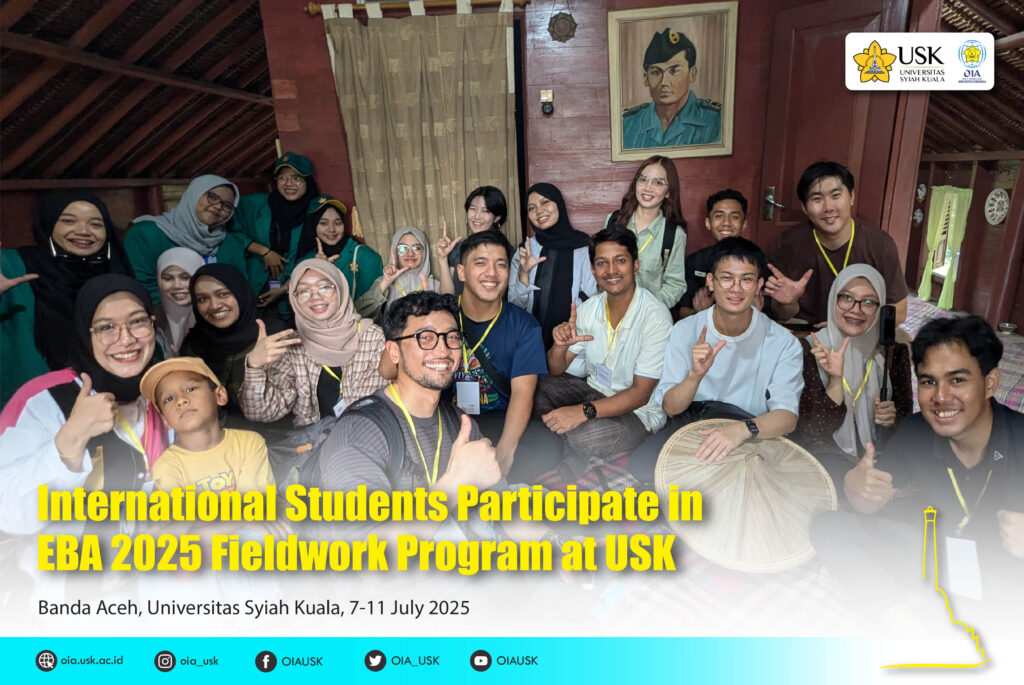
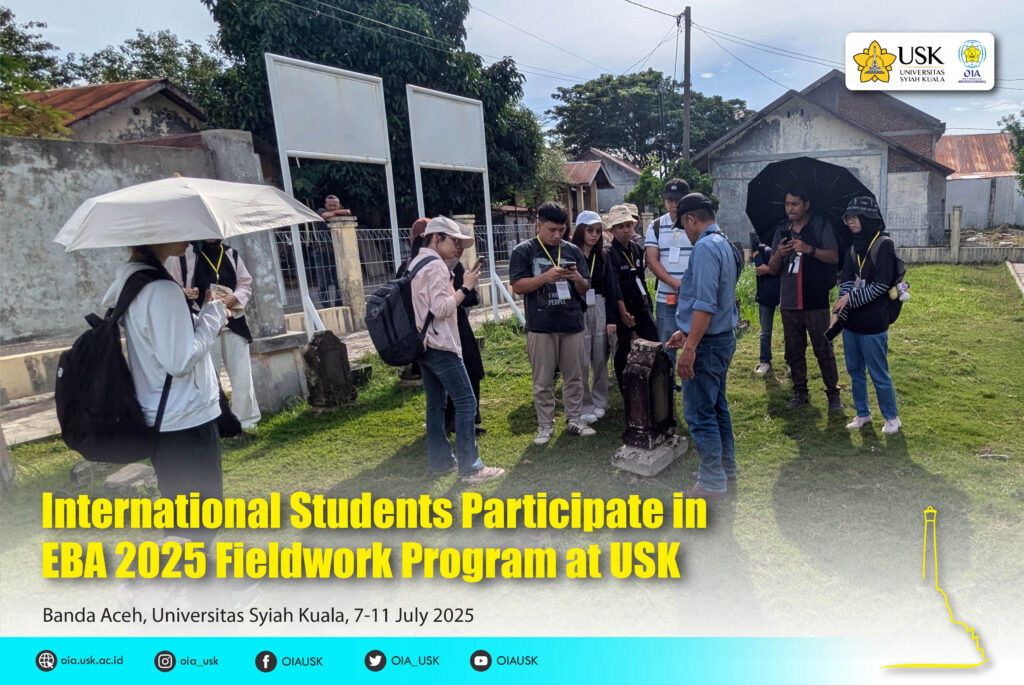
“This EBA fieldwork has been an eye-opening experience for me. We’ve visited many cultural sites around Banda Aceh in the past few days, and it’s been both fun and educational. We’ve learned about the local culture, history, and the stories shared by the communities. We are very excited to present our project and to think about how we can contribute to preserving ancient tombstones in Banda Aceh,”, said Mike Aaron Olaget Capsuyen, from University of the Philippines
“When we visited Gampong Pande yesterday, I saw many ancient tombstones. It was fascinating and became our main site for collecting data. We took many photos and videos. Though we were tired, I learned so much from the experience. I really hope to come back to Banda Aceh someday. Thank you.”, said Haruka Mori, from Keio University, Japan
According to the program coordinator, Mr. Rahmad Dawood from the Computer Engineering Program at USK, the fieldwork not only sharpened participants’ critical thinking but also strengthened international collaboration.
“Through this activity, students are encouraged to think beyond remembering culture—they are challenged to learn, preserve, and disseminate cultural heritage using data and technology-driven approaches,” he said.
This program was made possible through the support of SOI Asia, USK, and strong partnerships with local communities, traditional leaders, and academics. The event also received full support from several stakeholders including the Cultural Heritage Preservation Center (BPK) Region I, which provided access to key heritage sites, and the local governments of Gampong Lubok Sukon (Aceh Besar) and Gampong Pande (Banda Aceh), who warmly welcomed participants and supported the data collection process.
Throughout the fieldwork, activities were visually documented through a series of photos capturing participants’ interactions with local residents and their use of tools such as drones for cultural mapping, 360-degree cameras, and Creality scanners to create 3D visuals of historical artifacts. At the end of the program, each group presented their findings and digital prototypes to the organizing committee and fellow participants. This documentation will be part of the final report and shared publication.
The program concluded with a cultural tour to several iconic sites in Banda Aceh, including the Tsunami Museum, Floating Diesel Ship, Baiturrahman Grand Mosque, and Lampuuk Beach, marking a memorable end to the EBA 2025 Fieldwork experience.
